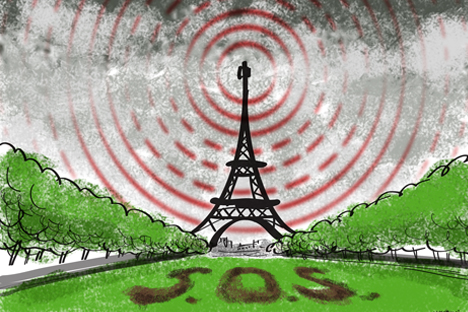
Upon Russia’s insistence, a truly inclusive multilateral process was launched in Vienna on Oct. 30 to help find a compromise solution to the Syrian crisis. Iran, a major player, took part for the first time, as well as China. All agreed to the U.S., Russia and the U.N. co-chairing the meeting.
Heated exchanges took place on the issue of President Bashar al-Assad’s future. As was the case three years ago, this could derail the entire process. But ultimately it was agreed to disagree on that issue. Lack of agreement on this subject resulted in three more years of bloody impasse. We should know better than that this time. All the more so that those are the differences between the outside players. Why not leave it to the Syrians to decide?
A joint statement was adopted by consensus. The middle ground agreed included such major principles of the outside world’s approach to the Syrian settlement as independence, territorial integrity and secular nature of the Syrian state; the preservation of state institutions, protection of the rights of all the Syrians irrespective of ethnicity and religion; humanitarian access and intensification of diplomatic efforts to put an end to the armed conflict.
The extremist approaches failed to win the support of the majority of the participants. The Geneva Communiqué of June 30 2012, backed by the U.N. Security Council, will serve as a basis for political process. It means the opposition and the government will have to agree on Syria’s future. Mutual agreement is key to any political settlement as opposed to a military solution and a solution that’s imposed from outside. As the examples of post-war Germany and Japan show, imposed solutions mean a military defeat, a long foreign occupation and a total commitment by major outside powers, including the provision of long-term economic and financial assistance. Short of that, a compromise looks the only viable option.
The second meeting in Vienna, held in the aftermath of the atrocities committed by terrorists in Paris, reflected in its statement a growing sense of unity in the face of this terrorist threat that went global. It is now agreed that the inter-Syrian talks will start under U.N. auspices by Jan. 1. The two parties will have to agree an inclusive mechanism of governance, a new constitution and elections. The latter will be prepared under UN control, including help for all the Syrians to take part.
It is envisaged that, with the launch of the political process, a ceasefire will come into force for all of the participants. The current military action will continue to suppress terrorists, who have tried to hijack the cause of the legitimate opposition. Terrorism is the single most important factor that has distorted the Syrian conflict from the beginning, when many had bet on a foreign intervention like that in Libya.
The past four years have provided enough experience for a sober and realistic assessment of the situation by all. This experience, paid for in blood and destruction, human misery on an immense scale and the proliferation of terrorism, should not have been in vain. Like in Egypt, it provided a glimpse of a future based on conquest rather than negotiated solution. After all, why not trust the wisdom of the silent majority who never outsourced their choice to people making their point with guns?
What is critical now is the compilation of the two lists of the opposition groups to make up a united delegation at the talks with the government and for the terrorist organisations to be proscribed by the U.N. Security Council. This is the only way to make something coherent out of the mess that the Syrian situation has degenerated into with all outside players acting at cross purposes.
It is for the Syrians to decide their future. The most the outside world can do is to come up with a clear-cut common position. That is the promise of the Vienna talks.
Alexander Yakovenko is Russian Ambassador to the United Kingdom. He was previously Deputy Minister of Foreign Affairs.
All rights reserved by Rossiyskaya Gazeta.
Subscribe
to our newsletter!
Get the week's best stories straight to your inbox